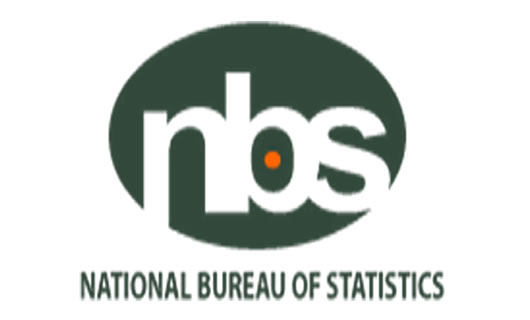Your Excellency, Professor Yemi Osinbajo, Vice President of the Federal Republic of Nigeria,
Your Excellencies, State Governors,
Honourable Minister of Finance, Budget and National Planning, Zainab Ahmed
Honourable Minister of Industry, Trade, and Investment, Adeniyi Adebayo
Honourable Minister of Communications and Digital Economy, Isa Ali Pantami
Honourable Minister of Information and Culture, Lai Mohammed
Honourable Minister for Science, Technology and Innovation, Senator Adeleke Mamora
Your Excellencies, Ambassadors
The President of the Islamic Development Bank, Muhammed Al Jasser
The Chief Executive Officer of the Agence Francaise de Developpement, Remy Rioux,
The Chief Executive Officer of the Bank of Industry, Nigeria, Olukayode Pitan
Director Generals, Executive Secretaries, and heads of government agencies,
Young business leaders of Nigeria,
Youth entrepreneurs,
Distinguished ladies and gentlemen.
I am delighted to join you today for the official launch of the Investment in Digital and Creative Enterprises (I-DICE). I wish to commend the Federal Government for this initiative. The initiative is timely, strategic, and transformative as it will build the ecosystems to support more competitive entrepreneurs powered by digital technologies.
I am very proud of the African Development Bank Group’s leading role in this initiative, which has the potential to generate millions of jobs for Nigeria’s youths. The urgency of leveraging the implementation of i-DICE for sustainable job creation, and economic transformation, is now.
With over 70% of Nigeria’s population under the age of 30, Nigeria has one of the greatest assets in the world. Some would call this a challenge to be managed. I call it an opportunity to be unleashed. It’s time to do things differently.
Yes, we gather to launch the initiative, but what we are really launching is more than this initiative. We are launching hope for the youth. We are launching platforms that will enhance the ability and capacity of Nigeria’s youth to thrive. We are launching the creation of millions of jobs. We are retooling Nigeria to be more competitive in an increasingly digital world. We are creating hope for a new Nigeria, driven by the power of the youth.
What Nigeria does with its youthful population will determine the future of Nigeria. Its future in terms of first-rate education to make them competitive. Its future in terms of skills to fill jobs today and create jobs of tomorrow. Its future in turning its dynamic, talented, and entrepreneurial youths into revenue assets.
It is time to create youth-based wealth for Nigeria. Youth-based wealth will rapidly expand the creation of jobs, expand the fiscal space with new sources of taxes, and support a more inclusive Nigerian economy, now and well into the future.
That is why, shortly after I was elected President of the African Development Bank, we launched the Jobs for Youth in Africa strategy. We project that the program will create 25 million new jobs by 2026 that focus on practical and high-impact solutions.
We are making great strides.
From 2016 to 2021, the African Development Bank supported the creation of over 12 million jobs, 3.1 million of which were direct and nine million indirect. This has been made possible through our high employment impact operations and special initiatives in key sectors such as agriculture, infrastructure, energy, and financial sectors, as well as in the digital and creative industries.
Additionally, the Bank’s Coding for Employment program has provided onsite centres and digital training platforms that have equipped 23,200 youth from 45 countries with the skills needed to succeed in the digital job market.
We have invested $2 billion in 37 tech projects to improve national and regional broadband infrastructure, foster private investment, and support digital enterprises.
And the African Development Bank is currently designing and will soon roll out Youth Entrepreneurship Investment Banks, new financial institutions that will build robust financial ecosystems around the businesses of young people across Africa.
That is why we like I-DICE: it is visionary, sees the future and prepares Nigeria for it.
That future is here. Every aspect of life is being transformed digitally. Think of digital financial services for money transfers, payments, banking, and insurance.
Think of e-health with rapid growth of digital platforms that aggregate services of medical doctors, pharmacists, and diagnostic service providers.
Think of e-government for better and more accessible service delivery to citizens.
Think of education, with digital platforms that connect teachers, tutors, and delivers open digital curriculum for enhanced and easily accessible learning for students.
When you think digital, think global.
It is estimated that the size of digital global health will expand from $217 billion in 2022 to over $1 trillion by 2031, an incredible growth.
The size of Africa’s digital economy will rise from $115 billion today to $712 billion by 2050. Most of this growth is already being driven by four countries, Nigeria, South Africa, Kenya, and Egypt.
The expansion of the digital economy is driven by several factors including the rapid growth in the youth population, the ubiquitous nature of access to mobile phones especially smart phones, increasing investments in supportive digital infrastructure, and the spark in digital entrepreneurship and innovations during the economic challenges imposed by the Covid-19 pandemic.
These digital trends hold great promise to help create massive number of jobs. For example, estimates by Endeavor (2022) show that expanding digital infrastructure by 10% will lead to a 2.5% annual growth in GDP in Africa. Furthermore, expanding access to the internet in Africa from the current 33% to 75% can help create 44 million jobs, including 3 million jobs in online services by 2025.
We are already witnessing in Nigeria the power of digital technologies, tools, and platforms. Nigeria currently has 5 out of the 11 digital companies that have reached the status of unicorn with market valuation of $1 billion. Names that come to mind include Jumia, Interswitch, Opay, Flutterwave and Andela, mainly in the fintech space.
Nigeria’s poor and fragmented cargo transport system is getting transformed gradually, thanks to Kobo 360 a digital logistics platform launched by two young Nigerians, Obi Ozor, and Ife Oyedele. It is incredible that between 2018 and 2020 the Kobo360 platform has connected 50,000 trucks and truck drivers and helped to move freight worth $200 billion (Source: Endeavor, 2022).
The creative industry in Nigeria is growing rapidly, in line with similar trend in Africa. The creative industry in Africa generated over $14 billion in revenue annually between 2015 and 2018 and is projected to help create close to 3 million jobs by 2025. Nigeria has yet to fully tap into and unleash the power of its creative industry which still needs efforts to promote content creators, supportive infrastructure, and access to financing for the film, media, fashion, visual arts, tourism, hospitality, and entertainment industries.
The I-DICE program will help to fill some of these critical gaps by supporting enterprise and skills development, access to demand-driven digital and creative skills, entrepreneurship skills, ICT enabled infrastructure, as well as expanding access to finance.
The African Development Bank is pleased to be a partner with the Federal Government of Nigeria on the $618 million I-DICE program. The African Development Bank is providing $170 million in financing to the program.
I am delighted that we have been able to mobilize additional co-financing of $217 million towards the program. I wish to thank our partners, the Agence Francaise de Developpement (AFD) that is providing $100 million; and the Islamic Development Bank that is providing $70 million. I also thank the Bank of Industry and the Federal Government of Nigeria for providing $45 million in counterpart funding. Through the independent fund managers for I-DICE, the program will raise an additional capital of between $131 million and $262 million.
The I-DICE program is set to be a real game changer.
It will help to create 6.1 million direct and indirect jobs and equip more than 175,000 young people with the technology and creative skills needed to drive innovation and foster entrepreneurship.
To start with, I-DICE will support 451 digital technology start-ups, 226 creative enterprises and 75 enterprise support organisations.
The benefits of the program to Nigeria’s economy are projected to be worth $6.4 billion.
Your Excellency, Ladies and Gentlemen,
I would like to express my profound appreciation for the Federal Government of Nigeria’s unwavering commitment to the I-DICE program. H.E. President Buhari’s personal endorsement of the Program in June 2022 is a great manifestation of the high political ownership of Nigeria’s innovation agenda.
I also highly commend the dynamic leadership of the Steering Committee of the Advisory Council on Innovation and Creativity chaired by H.E. Vice President Yemi Osinbajo that has spearheaded the design of I-DICE. The enactment of the Start-up Act in October 2022 provides a strong boost to the Federal Government of Nigeria’s efforts to enhance the enabling environment for the development of start-ups, as well as position Nigeria as Africa’s leading digital technology centre.
Thank you, Your Excellency Mr. Vice President, Professor Yemi Osinbajo for your exceptional leadership and foresight in shaping the design of the I-DICE Program. There are many things you will be remembered for, but I can tell you that nothing will be more than your unrelenting passion for the youth and your drive to ensure that you prepare them for the digital world. Thank for your outstanding leadership and service for our nation.
With the I-DICE, H.E. President Buhari, yourself, Mr. Vice President, and the Federal Government would leave behind a legacy for the future growth and dominance of Nigeria in the digital and creative industries, in Africa, and globally.
Together, let us use I-DICE to unleash an ecosystem that will drive the emergence of more dynamic and competitive youth entrepreneurs from Nigeria.
Let us unleash the wealth creating potential of the digital and creative industries.
Let us foster the emergence of a stronger Nigeria.
A Nigeria, built on the dynamism and creativity of its young people.
Let us bring the future of the youth into the present.
May God Bless Nigeria!






